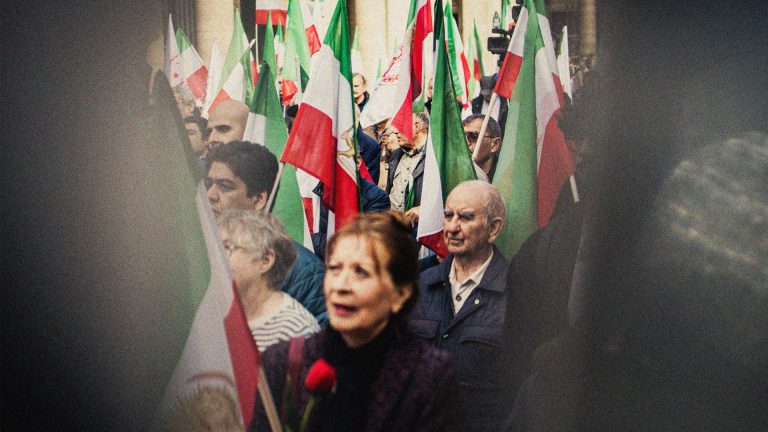The online right – which in the space of a decade has evolved from a relatively niche subculture to the dominant power in US politics – has a new fixation. This time it is the idea of freedom of speech in Europe being under unprecedented threat.
JD Vance used the idea of “silent prayer” being criminalised in his bizarre culture war speech at the Munich Security Conference, catapulting a popular trope among the American right.
The meme is an especially effective one among those it targets: it plays into the idea of traditional values being under threat, of Christians being a persecuted minority, and on the face of it, seems outrageous: what could possibly be wrong with “silent prayer”? What possible good reason would anyone have to object to such an innocent act?
Predictably, the real story behind all of this is quite different, and comes down to a bid by an evangelical anti-abortion group to overturn laws curbing their harassment of women seeking abortion care in the UK. It is the most effective campaign line they have found, and one they have successfully turned into a trope outside of its usual context.
It is also one with which I am unusually familiar – as I have tangled with the group before. 40 Days For Life first became active in the UK in 2012, importing a tactic of holding vigils outside abortion clinics which at the time was common in the USA but largely unheard of in Britain.
The campaign was centred around holding vigils outside clinics of the 40-day period of Lent (hence the name), and led to complaints that those present were intimidating staff and patients of the clinics, and even filming those who tried to access services (the group denied those doing the filming were affiliated with their protest).
Given that holding counter-protests at clinics would simply increase the level of fuss, agitation and crowding at such sites, a friend and I launched an online counter-protest encouraging people to donate to the British Pregnancy Advisory Service for each day the vigils continued – essentially turning the group’s activities into a fundraiser for BPAS.
In the 13 years since that first series of vigils, 40 Days For Life has comprehensively lost the political argument on abortion in the UK. The right to an abortion has been extended to Northern Ireland in that time, while public support for a woman’s right to choose is comprehensive – 87% of the public say abortion should be allowed, versus just 6% who say it should not. Only 9% of the public believe it is too easy to get an abortion. These kinds of numbers are almost unheard of in these polarised times – this is as close to consensus as any issue gets.
One piece of legislation that did pass over that time, though, restricted the activities of 40 Days For Life near abortion clinics – allowing for the creation of buffer zones within either 150 or 200 metres of a facility, banning any activity based on trying to interfere with a woman’s decision to seek an abortion.
Americans like to portray Europe as some form of free speech dystopia, but in reality free speech is a protected right across Europe, including in the UK. The US First Amendment is a negative right – it bans Congress from passing laws which interfere with a free press.
By contrast, Article 10 of the European Convention of Human Rights asserts a positive right to free speech, protected by the government – but the European rights framework also codifies (in Article 8) the “right to respect for private and family life”. There is no similar protection for privacy in the US Constitution.
Laws like those in the UK which enable a “buffer zone” around abortion clinics are designed to balance those two rights. Seeking medical treatment, especially as sensitive as abortion care, invokes a very high level of privacy protection, for obvious reasons.
By contrast, restricting the right of protest in these very limited areas is seen as a smaller imposition on free speech. Anti-abortion campaigners can protest almost anywhere, and express their views anywhere – especially online – but they cannot gather outside clinics.
Arguing that these laws criminalise “silent prayer” is an overt attempt to get these buffer zones overturned: the groups admit as much. There is only one conviction to which they can point in connection to these rules, and it is that of campaigner Adam Smith-Connor, who had been holding a silent vigil within a buffer zone.
Smith-Connor had been asked to leave the area on multiple occasions, over a period of more than 90 minutes, before powers of arrest were used. He was eventually convicted of a public order offence, but his punishment for this was a conditional discharge – essentially meaning he would face no penalty, provided he does not reoffend for two years. He was ordered to pay £9,000 for costs, but had crowdfunded for legal fees.
As state crackdowns go, a single arrest leading to a conditional discharge is pretty lame, which is why campaigners have to engage in such energetic hyperbole about it – claiming falsely that simply praying at home if you live near an abortion clinic is now criminalised.
The simple fact is that a woman seeking abortion care doesn’t know what a group of protestors is going to do – unless she is acutely aware of the nuances of the law, she doesn’t know if she’s going to be followed, harangued, intimidated, or more.
She should have the right to access healthcare unbothered, without even the silent, staring disapproval of campaigners – which, again, they admit is intended to interfere with her decision. If the trojan horse of “silent prayer” was successful in overturning laws enabling buffer zones, such vigils would not stay silent for long.
Abortion buffer zones are an expression of European values: a thoughtful balancing act respecting conflicting rights. The attack on that decision is a particularly American one – a moneyed group is weaponising a claim exaggerated to the point of falsehood, to try to force through wins on an issue it has lost on time and again in the court of public opinion.
Ultimately, the fuss over so-called “silent prayer” isn’t about safeguarding freedom of speech at all – it’s a fringe group attempting to strong-arm a win in a decades-old fight they’ve already lost. It deserves to be treated as such.












